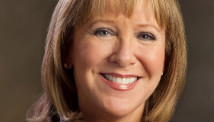TOKYO (Reuters) - Asian shares fell on Friday as a pick-up in Chinese inflation prompted profit taking but underlying sentiment was supported by an improving outlook for global economies, while the yen slid on renewed expectations for bold monetary easing in Japan.
China's annual consumer inflation rate accelerated to a seven-month high of 2.5 percent in December on rising food prices, narrowing the scope for the central bank to boost the economy by easing monetary policy. The producer price index fell 1.9 percent in December from a year ago, marking the 10th consecutive month of decline, but improved from November's 2.2 percent annual drop.
Brent crude futures eased 0.3 percent to $111.60 a barrel and U.S. crude trimmed earlier rises to trade nearly flat.
MSCI's broadest index of Asia-Pacific shares outside Japan <.miapj0000pus> eased 0.3 percent, erasing morning gains which brought the index near its highest level since August 2011 hit last week.
Shanghai shares <.ssec> fell 0.6 percent, dragging Hong Kong shares <.hsi> down into negative territory, while Seoul shares <.ks11> slipped 0.8 percent.
"It's not the end of the world. We have been trending in overbought territory for more than a week anyway, so this higher headline inflation is a trigger for some profit taking. We are in a consolidation phase," said Hong Hao, Bank of Communication International's chief equity strategist based in Hong Kong.
Hirokazu Yuihama, a senior strategist at Daiwa Securities in Tokyo, said the China inflation data offered some positive signs but, given the market's rapid rally over the past month, it was probably used as an excuse to book profits.
"The slight pickup in inflation is still well below the 3.5 percent forecast by China, and may also reflect recovery in consumption," he said, adding that the data was unlikely to significantly dent an overall trend in improving risk appetite.
Global markets rallied after China posted unexpectedly strong December trade numbers on Thursday, buoying hopes demand from the world's second-largest economy will rise.
World stock prices rose to an eight-month high on Thursday, with an encouraging view on the U.S. economy from a top Federal Reserve official driving the Standard & Poor's 500 index to its highest closing level in five years.
Reflecting growing confidence in equities markets, EPFR Global noted that equity mutual funds have brought in $6.8 billion of inflows over the last four business days, with equity flows exceeding bond flows.
In a sign of some stability, South Korea's central bank held interest rates steady for a third consecutive month on Friday as expected, to assess the effect from two cuts last year. However, the bank also revised down its outlook for South Korea's GDP growth in 2013 to 2.8 percent from 3.2 percent, which along with a sharp rise in the won hurt Seoul shares.
ABE FUELS NIKKEI BUYING
Japan's benchmark Nikkei stock average <.n225> climbed as much as 1.7 percent to a 23-month high as the yen accelerated its declines against the dollar and the euro. <.t/>
Prime Minister Shinzo Abe "is seen seriously committed to making the economy better as he is becoming more detailed, and investors are feeling it is possible under his government", said Kyoya Okazawa, head of global equities at BNP Paribas in Tokyo.
"While most macro funds have finished allocating Japan shares to their portfolios by the end of the year, we are getting inquiries from long-only funds which intend to pick up Japanese stocks on fundamentals."
Japan's cabinet approved on Friday an economic stimulus package in the biggest spending boost since the financial crisis as Abe pursues an ambitious agenda to spur growth and end stubborn deflation.
The dollar jumped to 89.35 yen, its highest since June 2010, on strengthening speculation Abe will exert strong pressure on the Bank of Japan to take much bolder measures to defeat deflation and stimulate the Japanese economy. The euro surged to 118.58 yen, its highest since May 2011.
The yen's latest slide came after Abe said in an interview with the Nikkei newspaper published on Friday that the BOJ should consider maximizing employment as a monetary policy goal to help boost the economy.
The yen selling also gained momentum after data on Friday showed Japan had logged a current account deficit in November for the first time in 10 months, as exports fell due to weak global demand and energy imports increased.
The deficit stood at 222.4 billion yen ($2.5 billion), overshooting a 3.5 billion yen deficit forecast.
Japanese financial markets will be closed on Monday for a public holiday.
EURO OPTIMISM
The European Central Bank on Thursday kept interest rates steady at 0.75 percent as expected, but its president Mario Draghi's comments offered a cautiously optimistic view.
The euro extended its gains on Friday to a one-week high of $1.3280.
Spain tapped markets on Thursday for its first bond sale of 2013, raising more money than expected at a lower borrowing cost than in a previous auction. Benchmark 10-year Spanish government bond yields fell to a 10-month low of 4.90 percent, somewhat easing investors' nerves about Spain's ability to manage its huge debts..
As the yen fell, Tokyo gold futures rallied to a record high on Friday to as high as 4,820 yen per gram, exceeding the previous record of 4,754 yen marked on September 7, 2011.
(Additional reporting by Ayai Tomisawa in Tokyo and Clement Tan in Hong Kong; Editing by Shri Navaratnam and Paul Tait)


